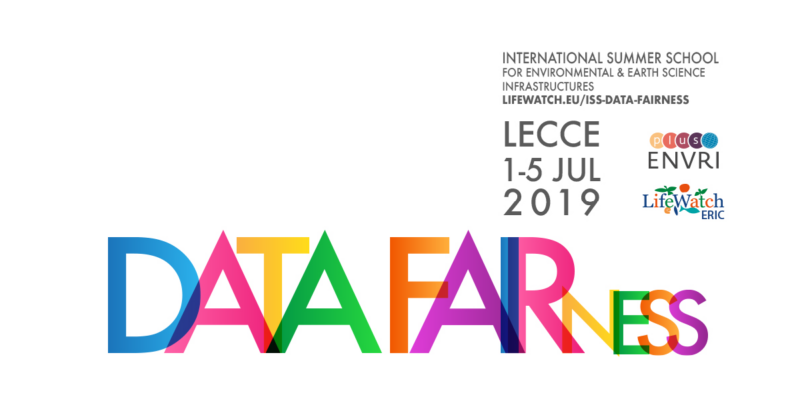
In its second edition as an International Summer School, the Data FAIRness programme in Lecce, Italy, from 1–5 July, attracted 25 participants from all over Europe to learn about the exciting opportunities in Open Science and Big Data management in environmental and earth sciences infrastructures.
Organised by LifeWatch ERIC, together with the European ENVRIplus H2020 project and the University of Salento, the Summer School is a professional development intensive which progresses from theoretical learning and discussion and culminates in individual student presentations of how they would apply FAIR management principles to their own work.
With representatives from Belgium, Estonia, France, Greece, Italy, the Netherlands, Norway, Portugal, Romania, Slovenia and Spain, the social interaction and professional networking was also a feature of the course. But at heart, the programme increases levels of knowledge, helps to overcome the fragmented nature of knowledge, and promotes greater complementarity and synergy between disciplines through the development of new common paradigms.
Managing and analysing enormous quantities of data derived from a variety of sectors and disciplines is, in fact, one of the greatest challenges that environmental and earth sciences have to face in the Information Age. Of the many tools and approaches have been developed to respond to the challenge, the most promising is ‘semantics’, which can be applied to the whole life cycle of data management, from acquisition to utilisation.
The semantic approach effectively overcomes the existing barriers to finding, accessing, interoperating with, and then re-using and sharing ecosystem and biodiversity data. The result is a marked improvement in our capacity to understand the great environmental questions of our days and then to propose innovative, science-based solutions.
The teachers on the Summer School were also an international mix: Barbara Magagna (Austria), Clement Jonquet (France), Jose Maria García (Spain), Margareta Hellström (Sweden), and Pierluigi Buttigieg (Germany) brought their collective expertise in support of course convenors Nicola Fiore (Italy) and Zhiming Zhao (Netherlands), while John Graybeal (USA) and Keith Jeffery (UK) contributed remote sessions.
The greater understanding of biodiversity and ecosystem research that LifeWatch ERIC promotes is of enormous practical use to the whole of society. It increases our capacities to respond to the environmental emergencies that the world is experiencing, especially factors which already today are the causes of poverty, social inequality, and growing economic uncertainty, not to mention conflicts sparked by competition for basic natural resources, like unpolluted air and water, food and sources of energy.